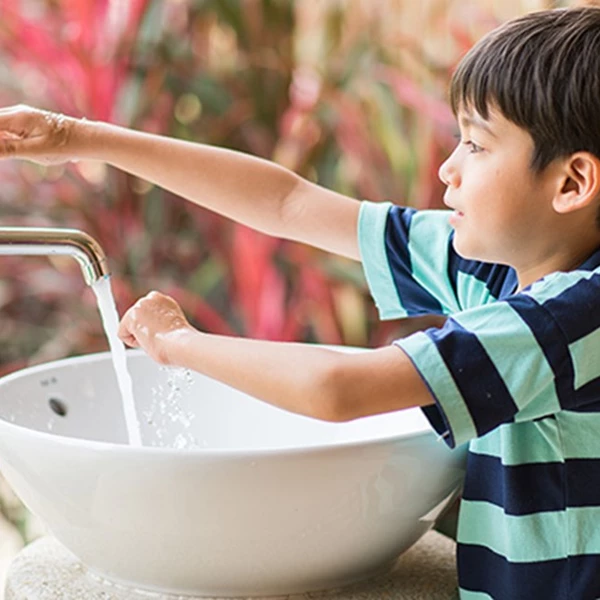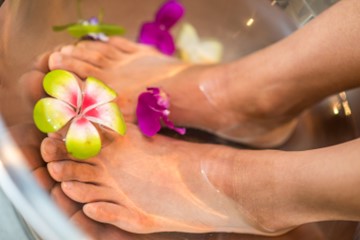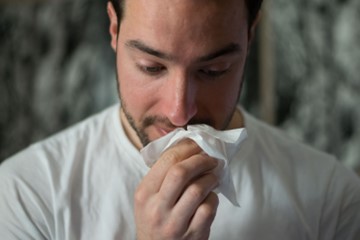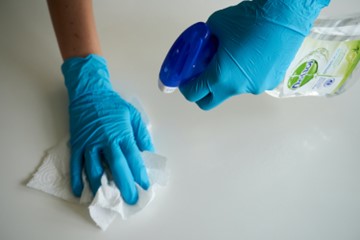Personal Hygiene A Complete Guide
Personal Hygiene: A Complete Guide to Staying Clean and Healthy
Personal hygiene is important for more than just looking beautiful, it also helps to preserve general health and well-being. By following the basic principles of personal hygiene, we not only protect ourselves but also those around us from bacteria and viruses that cause illness and assure a healthy lifestyle with mental and physical benefits.
Personal hygiene also communicates a positive message to everyone you encounter or speak with, forming a strong bond. As a result, personal hygiene is critical for general health.
What is Personal Hygiene?
Personal hygiene is an array of routines and practices that keep you healthy and clean. Personal hygiene practices strive to avoid the transfer of harmful germs, bacteria, and viruses, minimizing the likelihood of infections and diseases if you truly want to be healthy and safe from all unhealthful and dangerous germs and viruses.
Everyday tasks include bathing with soap, brushing your teeth properly, trimming your nails, washing your hands frequently, covering your mouth while sneezing or coughing, wearing clean clothes, and so on.
Why is Personal Hygiene Important?
Maintaining good personal hygiene is critical for a variety of reasons. It protects you and your family from the risks of contracting or spreading germs. Germs and viruses can be spread by getting in contact with other individuals, encountering unclean surfaces, or eating unhealthy meals. So, maintaining personal hygiene can serve as a safeguard for you and your entire family.
Second, it raises our self-esteem and improves our social connections. A well-groomed and tidy look can make a pleasant and long-lasting impression on others. Not only that, but good personal hygiene improves your mental and physical wellness and avoids unpleasant body odours, foul breath, and skin problems. It also lowers the danger of infection in sensitive parts of the body and keeps us feeling fresh and comfortable throughout the day.
What are the 7 Types of Personal Hygiene?
There are 7 types of personal hygiene that contribute to disease prevention and cleanliness. Personal hygiene practices include hand hygiene, oral hygiene, hair hygiene, nail hygiene, ear and nose hygiene, and clothing hygiene. Adhering to different types of personal hygiene helps you maintain good physical health, controls the spread of infections, and improves your overall sense of wellness.
Hand Hygiene:
Hands are the primary transporters of germs, making hand hygiene an essential practice for keeping yourself and your family healthy. Germs can transmit from person to person when you touch your mouth, eyes, or nose with unclean hands, or when you touch germ-infested objects or surfaces. Coughing and sneezing into your hands, touching other people's hands or common objects, and ingesting food or drinks without washing your hands can expose you to hazardous infections.

Handwashing for at least 20 seconds using germ protection soap or hand wash like Dettol can dramatically lower the incidence of infections and illness. Remember to wash your hands frequently before eating meals, after using the restroom, and after touching pets, during illness outbreaks such as coughing and sneezing, while handling sanitary pads, and touching surfaces in public places.
Oral Hygiene:
Oral hygiene not only improves your smile but also maintains your overall health. Whatever you eat or drink, it is the area of your body from where you consume food or drink for the overall health of your body. If that area is infected, you will be unable to get pleasant and healthy well-being.
A lack of oral hygiene can make it difficult to speak or present yourself in front of others due to the fear of bad breath and oral diseases such as cavities or gum infection. Taking care of our oral health therefore entails brushing our teeth twice daily, flossing on a regular basis, and using a mouthwash.
Body Hygiene:
Every day, a human body releases some darts through the body's hair follicles, in the form of sweat, or dry skin. If you don't clean it on a regular basis, it might become coated and infected. Bathing or washing at least once a day removes dirt and bacteria from the skin, keeping it fresh and clean.
However, according to a 2018 study, the ideal temperature for a bath is at 40° C, which is just above the average body temperature. It aids in the reduction of fatigue, stress, pain, and overall wellness. Using a good quality body wash or soap, such as Dettol, guarantees excellent washing and protection against hazardous germs without over-drying your skin.
Addressing a specific concern connected to your body odour involves wearing clean, regularly washed clothes and changing clothes, especially underwear, and socks; this practice is crucial for personal hygiene, avoiding skin problems, and increasing social attraction. Throughout the day, our clothes come into contact with a variety of surfaces, including our skin, sweat, and environmental toxins. These variables contribute to a favourable environment for bacterial and fungal growth on the cloth. If these germs are not cleansed, they can build and cause skin diseases and unpleasant odours.
Hair and Scalp Hygiene:
Taking care of your scalp and hair can provide relief from numerous infections while also enhancing social interaction due to its nice odour and shine. The human scalp produces a natural oil called sebum, which keeps the scalp moist and protects it from infection. However, if you do not clean your scalp, it begins to accumulate dead skin and sweat, increasing the risk of infection.
So, keeping your hair clean and well-groomed with shampoo, and conditioner, washing it often, combing it, and applying oil is critical to preventing dandruff, lice, and scalp infections.
Nail and Foot Hygiene:
Our nails and feet need special attention as well. It is critical to trim nails on a regular basis to keep them short, clean, and to remove dirt present under them. Due to their length, fingernails can harbour more dirt and bacteria, and when you cook food, cut vegetables, or even eat, this might transfer and create an infection. Avoid biting your nails and use the correct trimming tools. Before using the nail clipper or files, make sure you clean it well, especially if it is used among a group of people, such as in a salon or at home.

Foot hygiene entails bathing and moisturising your feet, wearing clean and breathable shoes to prevent fungal infections and foot odour, and wearing well-fitting, protective footwear. In light of the fact that there are so many deadly bacteria in public places, they can easily enter our homes and infect us and our entire family. Taking care of your feet might help you avoid foot ailments like blisters and calluses.
Intimate Hygiene:
This entails providing specific care for sensitive areas, such as the vaginal area, in order to prevent infections and maintain overall intimate hygiene and health. This is especially crucial for men and women to avoid becoming infected with potentially fatal illnesses. Men can clean their penis by gently drawing back the foreskin and washing the area with warm water or soap. Women can wash the delicate skin around the vulva with unscented soap and warm water. Avoid using random soaps and bath products that could aggravate your delicate skin.
Douching should be avoided since it might wash out healthy bacteria from your vagina and disrupt the natural balance. Wear breathable underwear, change tampons or pads frequently during menstruation, and seek medical care if you experience any odd symptoms.
Coughing and Sneezing:
While coughing or sneezing, practicing basic etiquettes will assist you to prevent spreading germs and viruses such as Covid-19, that spreads from person to person. Cover your mouth and nose with a tissue or handkerchief whenever you cough or sneeze. Regularly change the used tissue or wash the used handkerchief. If you are ill, you can wear a mask in public places.

Importance of Hand Hygiene in Preventing the Spread of Diseases
Hand hygiene requires special attention in terms of personal hygiene due to its critical role in preventing disease transmission and infection. Our hands come into contact with a variety of surfaces on a daily basis, including touching our face, mouth, or nose while shaking hands with others, eating food, and traveling on public transportation, among other things.
Using contaminated hands can result in the transmission of these germs into our bodies, causing infections. Overall, the hand is the most vital part of our body to maintain hygiene.
Proper Handwashing Techniques and Frequency
To maintain effective hand hygiene, it is very important to:
- Wet your hands under clean running water.
- Apply enough soap (like Dettol hand wash) ensuring you cover all surfaces of your hands.
- Rub your hands together vigorously including between the fingers and the back of the hands at least for 20 seconds.
- Rinse both side of the hands thoroughly with water.
- Dry your hands using a clean towel or air dryer.

Benefits of Using Dettol Hand Wash for Effective Hand Hygiene
Since 1933, Dettol hand wash has been known for its powerful germ-killing qualities. Dettol disinfection products contain active ingredients that are bactericidal and virucidal. Using Dettol hand wash can provide an additional layer of 99.9% bacteria prevention. Its mild formula is suited for daily use and keeps your hands clean, soft, safe, and fresh.
How to Maintain Personal Hygiene?
Here are some valuable tips for maintaining overall personal hygiene that will keep you safe and healthy:
- Wash your hands frequently, especially before touching any surfaces in public areas, after eating, coughing, and so on.
- Wash your entire body with soap on a regular basis.
- Use shampoo to wash your hair and scalp.
- Wash your genitals on a regular basis.
- Use clean, fresh towels and replace them on a regular basis.
- Keep your nails trimmed and clean to reduce bacterial buildup.
- Dress appropriately in breathable materials to reduce sweat and body odour.
- Use proper intimate hygiene procedures to avoid infections.
- To reduce dust and allergens, keep your living environments clean and clutter-free.
Hygiene on the Go:
Sometimes in our fast-paced lives, we encounter situations where proper hygiene facilities are severely limited. For example, when we go on a trip and get in touch with public surfaces, enjoy street food, use a public restroom in an emergency, and so on. The same is true when our child attends school or college, when they meet hundreds of new friends, and their hygiene suffers. In such cases, we must also consider our own and our loved ones' health and well-being.
Carrying portable hygiene care, such as hand sanitizers and wet wipes, might be advantageous. Dettol provides a variety of on-the-go germ-killing products that are both convenient and effective. Make sure that your trip, outdoor activities, or attendance at public events are filled with excitement rather than concern on how you will maintain all your hygiene. These portable hygiene solutions come to your aid, keeping you safe even when water is scarce.
As a result, personal hygiene is more than just a matter of look; it is critical for us and our family's health. We can live a healthier and more confident life simply by remembering the aforementioned ideas and personal hygiene practices. Let us prioritise personal cleanliness and embrace these basic yet effective practices for a happier and healthier future.
